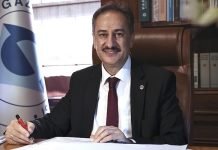Sixty-four press freedom and civil society organizations have condemned Turkey’s decision to revoke the terrestrial broadcasting license of independent radio station Açık Radyo, according to a statement by Freedom House.
The signatories, led by the International Press Institute (IPI), called on Turkish authorities to reinstate Açık Radyo’s license. The coalition includes Freedom House, the Committee to Protect Journalists (CPJ), PEN International and the European Federation of Journalists (EFJ).
“We call on Turkish authorities to fulfill their obligations to protect freedom of the press and expression in line with the Constitution of the Republic of Turkey and the European Convention on Human Rights,” the statement said. “We urge the immediate reinstatement of Açık Radyo’s broadcasting license, ensuring that media outlets in Turkey can operate and enable discussion on matters of public interest without fear of reprisal.”
The rights organizations emphasized that the decision undermines media pluralism and the public’s access to independent information. They called on the international community to support Açık Radyo, highlighting the broader impact on press freedom in Turkey.
“Açık Radyo has been a crucial voice for three decades, offering space for debates on issues from climate change to public health,” the statement said. “Silencing this platform is a blow to Turkey’s democratic fabric.”
Açık Radyo, founded in 1995, faced penalties earlier this year for statements made by a guest during a broadcast on April 24, referencing the Armenian genocide.
Armenia says Ottoman forces massacred and deported more than 1.5 million Armenians during World War I between 1915 and 1917. Some 30 countries have recognized the killings as genocide, a charge vehemently rejected by Turkey.
Ankara admits nonetheless that up to 500,000 Armenians were killed in fighting, massacres or by starvation during mass deportations from eastern Anatolia.
The Radio and Television Supreme Council (RTÜK) imposed a fine and suspended the station’s broadcasting for five days, accusing it of “inciting public hostility.” Despite the station paying the fine, RTÜK later decided to revoke its license, citing repeated violations.
The Ankara 21st Administrative Court initially suspended the license revocation, stating that a broadcast suspension could cause irreparable damage. However, after appeals, the request for a stay was denied, leading to the final enforcement. The station’s terrestrial broadcasts ceased on October 16, following formal notification on October 11.
Turkey was ranked 158th in the Reporters Without Borders (RSF) 2024 World Press Freedom Index, among 180 countries, not far from North Korea, which occupies the bottom of the list.
Rights groups routinely accuse the Turkish government of trying to keep the press under control by imprisoning journalists, closing down media outlets, overseeing the purchase of media brands by pro-government conglomerates and using regulatory authorities to exert financial pressure, especially after President Recep Tayyip Erdoğan survived a coup attempt in July 2016.















